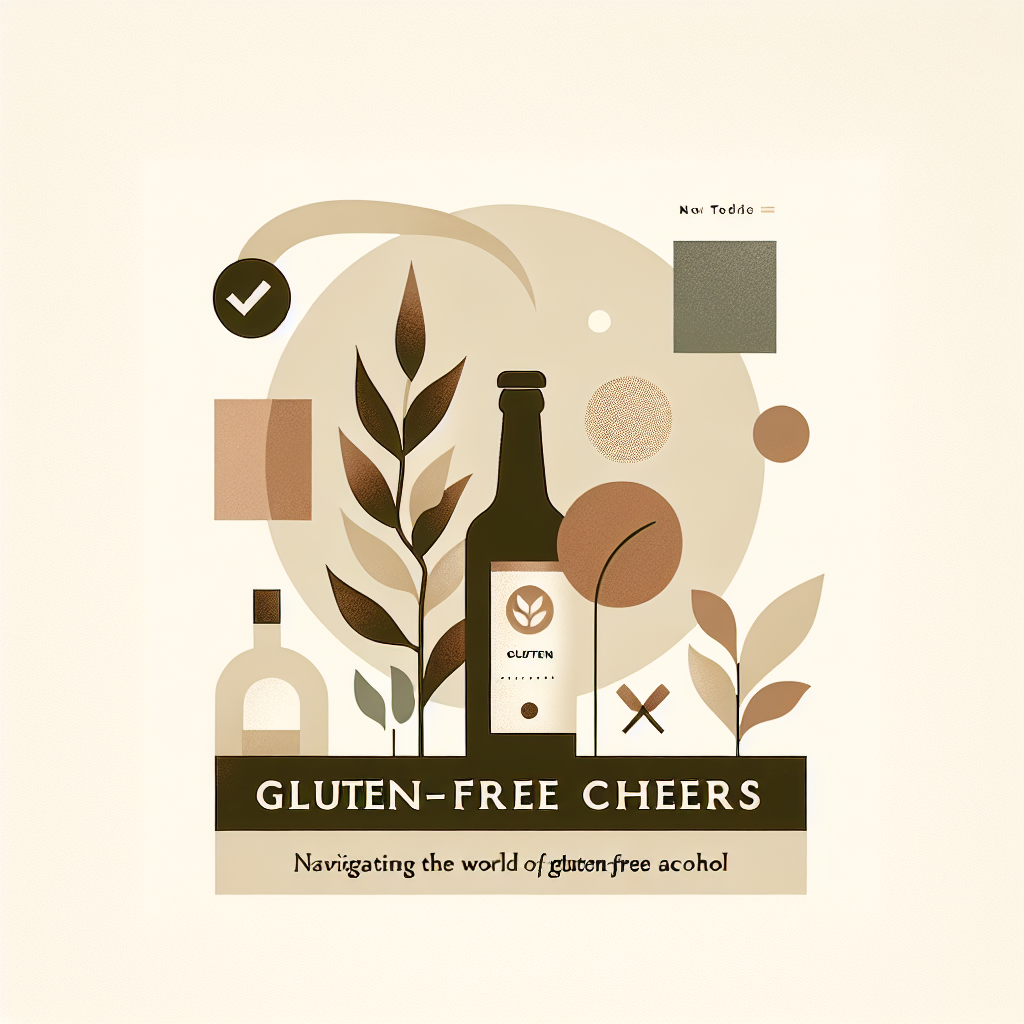When you live a gluten-free lifestyle, it’s not just about the foods you eat—it’s also about the beverages you sip on a daily basis. While it may be a given that drinks like water, fruit juices, and most kinds of tea are naturally gluten-free, what about the more recreational beverages? They say “it’s always five o’clock somewhere”, so let’s explore every gluten-free individual’s liquor cabinet and look at the ins and outs of gluten-free alcohol. Here’s to raising a glass to your health, while still satisfying your palate!
First thing’s first—let’s talk about beer. Now, as you may know, traditional beer is made from barley, which is a big no-no for a gluten-free diet. Fortunately, with the focus on health-conscious lifestyles and dietary restrictions these days, more breweries have been experimenting with gluten-free recipes — and succeeding!
Brewers take different approaches to creating beers that are safe for people with gluten sensitivities or celiac disease. Some craft “gluten-removed” beers, using enzymes to break down gluten in regular barley-based beer — but if you’re highly sensitive to even traces of gluten, these might not be your best option. Alternatively, other breweries make “100% gluten-free” beers from ingredients like sorghum, rice, millets, or buckwheat, which are totally safe options.
In our past post, [“Your Comprehensive Guide to Gluten-Free Beer”](http://www.easygf.com/your-comprehensive-guide-to-gluten-free-beer), we dive into more detail about the various gluten-free beers on the market and how they’re made. Give it a read to discover the perfect brew to match your tastes and dietary needs!
Now, let’s divert our gaze from family barbecues and sports games to a more sophisticated setting. We’re talking about wine. Most wines, whether they’re red, white, rosé, or sparkling, are naturally gluten-free, as they’re made from a combination of grapes, yeast, and sometimes added sugars. However, if you’re super sensitive to gluten, you might want to be cautious about certain aspects, like how the wine barrels are sealed — some wineries use a wheat paste to seal their barrels, which could potentially contaminate the wine (though it’s very rare).
If you’re a wine lover (And, honestly, who isn’t?), check out our previous blog “The World of Gluten-Free Wine” where we discuss the varied world of wine in more depth. We discuss the unexpected places gluten might be hiding in your vino and give pointers on some lavish, flavorful gluten-free wine options.
Although beer and wine are weekend favorites, there is a vast ocean of alcoholic beverages out there, some of which remain lesser explored. As we proceed with our cocktail exploration, we mustn’t forget about spirits and liqueurs. These showstoppers can be the highlights of many a glamorous party!
Across the board, spirits such as vodka, tequila, gin, whisky, and more are all distilled — a process that should technically remove any traces of gluten from the final product. However, as with beer and wine, there can be some caveats. Some spirits, particularly those that are flavored, might contain additions post-distillation that could introduce gluten, so they’re worth looking into if you’re particularly sensitive.
Moreover, mixers can be as important in a cocktail as the spirit itself, and it’s crucial to ensure that your mixers are gluten-free too. Many sodas, fruit juices, and tonic waters are naturally gluten-free, but do keep an eye out when it comes to ingredients of pre-made mixers or cocktail blends. For those with a sweet tooth, be especially mindful of flavored syrups and liqueurs. While many are gluten-free, there can be exceptions.
So there you have it, my friends—a whirlwind tour of the gluten-free liquor cabinet. Whether you’re more inclined to a refreshing beer, a glass of elegant wine, or enjoy experimenting with vivacious cocktails, there are plenty of gluten-free options available for you to enjoy, as long as you know where to look.
Before we raise a final toast, let us recap what we’ve learned today:
1. Gluten-free beers go through different processes. Gluten-removed beers may not be suitable for those with high gluten sensitivity. Beers made with 100% gluten-free grains are the safest bet.
2. Most wines are naturally gluten-free, but if barrels are sealed using wheat paste, they could become contaminated. Check with your preferred vineyard if in doubt.
3. Spirits are distilled, which should remove gluten, but post-distillation additions could reintroduce gluten. Be mindful of mixers and additives in flavored spirits and liqueurs.
The world of gluten-free alcohol can be an exciting journey rather than a minefield. It allows you to experiment and find your favorite tastes, without compromising your dietary needs. Bon voyage, my gluten-free connoisseurs, into the world of delightful drinks!
**Category: Lifestyle & Social**


